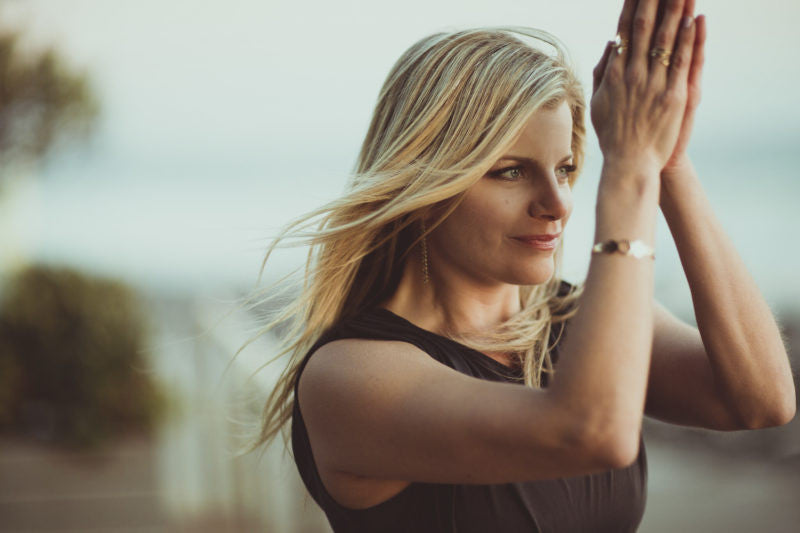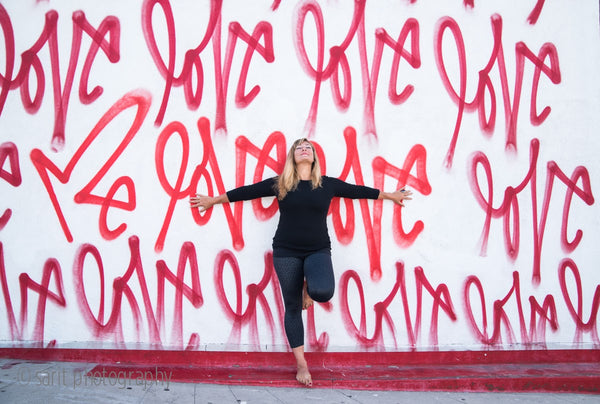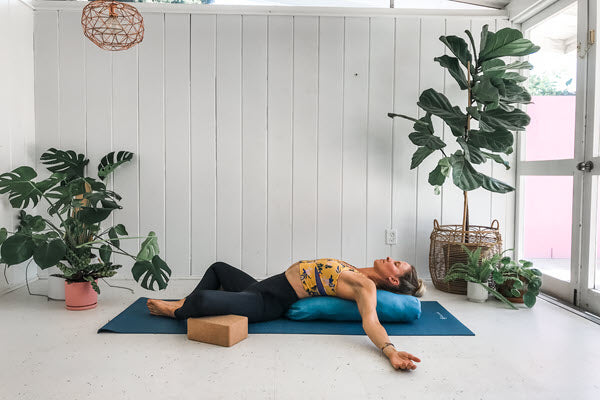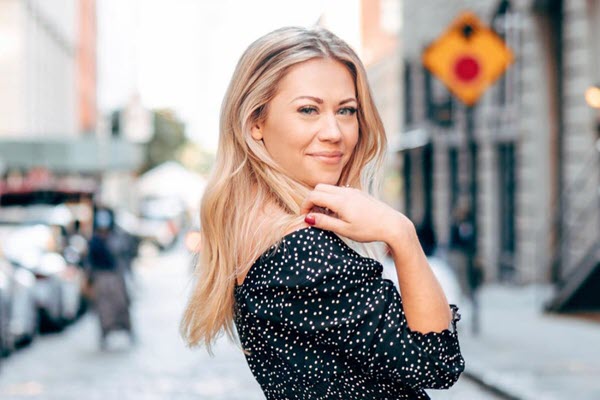Have you always wanted to start meditating, but don’t know how? Or started a meditation practice and quickly fallen off the wagon? It takes a little instruction, but it’s simpler and easier than you may think. Continue reading to learn how to start a meditation practice.
As yogis have known for centuries, and scientists have more recently confirmed, the benefits of meditation are profound. Studies have shown that meditation can help you lose weight, improve communication and relationships, reduce anxiety and depression, overcome addiction, sharpen your thinking, and even gain more control over your emotions.
When you meditate, you access deeper brainwave states, helping to clear distracting thoughts, reduce stress, and boost brainpower while cultivating a spiritual connection and reaching deeper states of awareness and wholeness.
My meditation practice has taken many years of refinement, and there are still days when I struggle to get myself to my cushion. These ten tips are the key pieces of advice I give to students as they seek to grow their own meditation practices.
Get comfortable
We tend to make any meditation practice more complicated and challenging than necessary. When you're learning ho to start your meditation practice, take it easy. Start by taking a comfortable seat. If you’re flexible, sit on the floor, on a meditation cushion, bolster, or blanket (hips higher than your knees). If you’re not, sit in a chair with your feet on the floor.
Same time, same place
One of the most effective ways to coax the mind into submission is to create a ritual. Set a clearly designated space for meditation. This can be as simple as a candle, picture, or stone, thoughtfully placed. Practice at the same time every day. Start with the same protocol for each meditation. Routine triggers the mind out of the left brain (logical, linear) and into the right hemisphere (intuitive, non-linear).
Sit tall
Straighten your spine. Sit in a chair or against the wall if you need to. Lengthen the spine to help increase circulation and keep you alert.
Start small
Start where you are. If ten minutes seems overwhelming, begin with five. After a week, begin to add a minute to your practice each week until you build up to 30 minutes, or more, at a time.
Be nice to yourself (really nice!)
As renowned meditation teacher Sally Kempton says, “Meditation is relationship.” Ultimately, it is all about your relationship to yourself. The way you do anything is the way you do everything. Meditation teaches us radical acceptance, compassion, and unconditional love. Be sweet to your byzantine mind. Surrender to exactly who you are and what is happening, right here, right now. Smile.
Note your excuses
Meditation is a practice of self-inquiry. Observe the excuses you tell yourself. “I’m too tired.” “I don’t have time.” You can carve five to ten minutes out of your day. Notice how your mind rationalizes breaking your commitment. No judgment — just observation and understanding. Then, recommit.
Find a meditation buddy
Accountability is the answer to your excuses. Find a buddy. We all have an overactive, unruly mind. It’s built that way! Find a friend who is also beginning to meditate, or join a Facebook group or online course. Your struggle is normal, and it will get easier.
Practice makes perfect
Or at least perfectly imperfect. As the great Ashtanga guru Patthabi Jois says, ”Practice. Practice. Practice. All is coming.” Like anything, we get better with practice. Think of your meditation as bicep curls for the muscle of your mind. You are training your brain to focus, concentrate and let go. Over time, with consistency, you will become more skillful.
Just breathe
The breath is a gateway beyond the mind. Our mind is addicted to analyzing the past or projecting into the future. The breath is only ever right here, right now. Focus on your breath to anchor the mind into the present moment.
Start a “benefit book”
End your mediation practice by observing the benefits of your practice. How do you feel? What is your emotional state or mood? Make note any changes so they register in your body and conscious mind. Next time you resist meditation, remember the benefits to help you motivate and stay committed.
Ashley Turner, M.A., MFTI, completed a Masters in Counseling Psychology from Pacifica Graduate Institute. She lives in the mountains of Aspen, CO and by the beach in Marina Del Rey, CA, where she works as a yoga and meditation teacher, registered Marriage and Family Therapist Intern, writer, and ordained priestess. She is the creator of ten best-selling yoga DVDs and the online series Meditation 101, Women Ignite, and How to Meditate, as well as co-author of Aroma Yoga. With Sianna Sherman, she co-founded the Urban Priestess year-long apprenticeship and certification series, and leads an annual Avalon Priestess Pilgrimage to Glastonbury and the Chalice Well. Ashley launched Montage’s signature monthly yoga-mind-body workshops, and is a contributor to publications including Self, Shape, Mantra,Origin, Women’s Health, Yoga Journal, and Natural Health.




